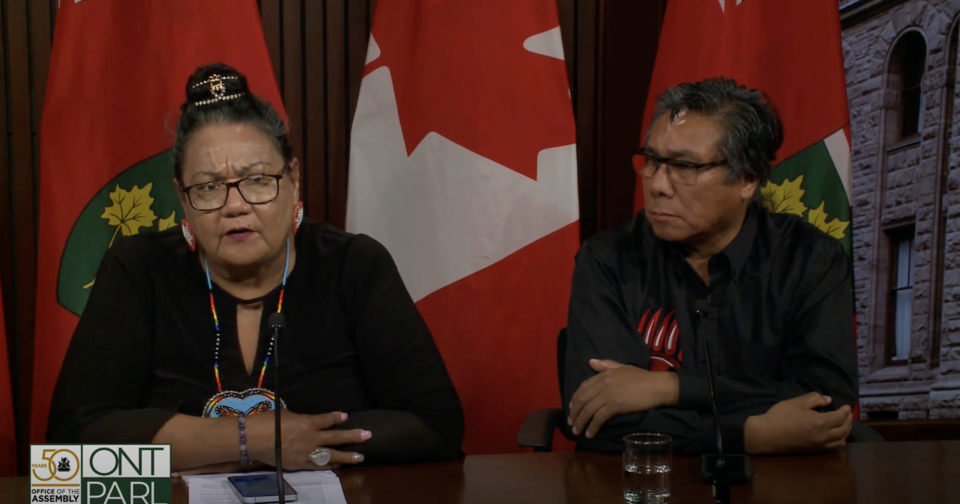A group of six First Nations across northern Ontario are among the latest challenging the constitutionality of the province's Mining Act, calling it "racist" legislation and claiming it violates their treaty and Charter rights.
"The Ontario Mining Act is a piece of racist legislation that bulldozes over First Nations' lands and rights," said Chief June Black from Apitipi Anicinapek Nation, one of the groups included in the application that was filed with the Ontario Superior Court.
The others are Aroland First Nation, Attawapiskat First Nation, Fort Albany First Nation, Ginoogaming First Nation and Kitchenuhmaykoosib Inninuwug First Nation.
The First Nations want the court to declare some parts of the Mining Act unconstitutional and be "struck and replaced." They also want all mining claims registered in the province where an exploration permit hasn't been issued to be considered "void and of no force or effect" and for First Nations to be consulted prior to claims being made.
Kate Kempton, senior counsel with Woodward & Co. Lawyers LLP, said that under the current system, anyone from around the world can go online and register a mining claim for a small fee.
"Those mining claims give certain property rights to the claims holder, and Ontario's Mining Act allows those mining claims' property rights to trump First Nation rights to those lands as soon as a mining claim is recorded," Kempton said at a press conference at Queen's Park on Monday morning. "First Nations can no longer steward or conduct their full way of life on those lands. They can't turn those lands into new reserve lands. They can't turn them into Indigenous parks."
Kempton said while claims need to be recorded for companies to apply for exploration permits, the "claims recording breaches rights to begin with" when it comes to consultation with First Nations. Even then, she said the government isn't properly engaging or protecting Indigenous rights at the exploration stage.
Chief Black of Apitipi Anicinapek Nation echoed this, calling the province's consultation regime "so weak as to be non-existent."
Kempton said another issue is that "non-Indigenous property interests and land are protected from free-for-all, willy-nilly claims recorded. Indigenous rights and interest to land are not — it's as racist as it comes."
Kempton explained that a small percentage of land in the province — including private residences, churches, railroads, dams — are "protected from automatic recording" of claims.
"Ontario, you are not allowed to give away our lands and our rights anymore. We are taking you to court to stop this once and for all," said Black, going on to share her concerns over impacts on land and water.
"I can't even begin to tell you the feelings that are arising for me and our communities, knowing our water is getting so very close to contamination, the water we hold sacred since time immemorial, the water used during our sacred ceremonies, and ensuring we maintain our part in upholding our responsibility to take care of the land as given by the creator," she said.
The legal application follows a similar one launched by Grassy Narrows First Nation last month, which is asking the court to invalidate all mining claims on its territory.
The lawyer in the Grassy Narrows application said at the time that the legal action and the outcome could have provincewide implications.
Indigenous leaders have been calling on the government to place a one-year moratorium on the online mining claims system, which has been in place since 2018. But Mines Minister George Pirie's office told CBC earlier this year that the government wasn't considering such a moratorium.
The offices of the mines and Indigenous affairs ministers did not respond to a request for comment before publication.
Attorney General Doug Downey's office said that because "this matter is subject to litigation, it would be inappropriate to comment further."
-With files from Aidan Chamandy




